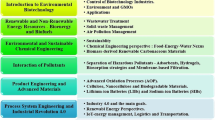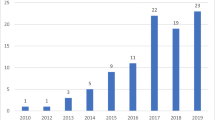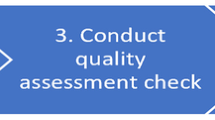Abstract
Managing the electricity network through ‘smart grid’ systems is a key strategy to address challenges of energy security, low carbon transitions and the replacement of ageing infrastructure networks in the UK. Small and medium enterprises (SMEs) have a significant role in shaping patterns of energy consumption. Understanding how their activities interrelate with changes in electricity systems is critical for active network management. A significant challenge for the transformation of electricity systems involves comprehending the complexity that stems from the variety of commercial activities and diversity of social and organizational practises among SMEs that interact with material infrastructures. We engage with SMEs to consider how smart grid interventions ‘fit’ into everyday operational activities. Drawing on analysis of empirical data on electricity use, smart metre data, surveys, interviews and ‘energy tours’ with SMEs to understand lighting, space heating and cooling, refrigeration and IT use, this paper argues for experimenting with the use of practise theory as a framework for bringing together technical and social aspects of energy use in SMEs. This approach reveals that material circumstances and temporal factors shape current energy demand among SMEs, with ‘connectedness’ an emergent factor.


Similar content being viewed by others
References
Arteconi, A., Hewitt, N. J., & Polonara, F. (2013). Domestic demand-side management (DSM): role of heat pumps and thermal energy storage (TES) systems. Applied Thermal Engineering, 51(1–2), 155–165. doi:10.1016/j.applthermaleng.2012.09.023.
Bichard, E. (2000). Time to reassess the small business environment advisory system in the UK. In R. Hillary (Ed.), Small and medium-sized enterprises and the environment. Sheffield: Greenleaf.
Barr, S., & Gilg, A. W. (2007). A conceptual framework for understanding and analyzing attitudes towards environmental behaviour. Geografiska Annaler: Series B, Human Geography, 89, 361–379. doi:10.1111/j.1468-0467.2007.00266.
Bilton, M., Ramsey, C., Leach, M., Devine-Wright, H., Devine-Wright, P., & Kirschen, D. (2008). Domestic electricity consumption and demand-side participation: opportunities and challenges for the UK power system. In M. Grubb, T. Jamasb, & M. G. Pollitt (Eds.), Delivering a low carbon electricity system: technologies, economics and policy (pp. 207–228). Cambridge: Cambridge University Press.
BIS (Business, Innovation & Skills) (2012). Business population estimates for the UK and regions 2012. London: Department for Business Innovation and Skills. Resource document. www.bis.gov.uk/assets/biscore/statistics/docs/b/12-92-bpe-2012-stats-release.pdf. Accessed 18 December 2013.1
Bradford, J., & Fraser, E. D. G. (2007). Local authorities, climate change and small and medium enterprises: identifying effective policy instruments to reduce energy use and carbon emissions. Corporate Social Responsibility and Environmental Management, 14.
Brown, J., & Duguid, P. (1991). Organizational learning and communities of practice: toward a unified view of working, learning, and innovation. Organizational Science, 2(1), 40–57.
Carbon Trust, (2010). Advanced metering for SMEs: carbon and cost savings. Resource document. https://www.carbontrust.com/media/77244/ctc713_advanced_metering_for_smes.pdf. Accessed 18 June 2015.
Cebon, P. B. (1992). Twixt cup and lip: organizational behavior, technical prediction, and conservation practice. Energy Policy, 20(9), 802–814.
Clastres, C. (2011). Smart grids: Another step towards competition, energy security and climate change objectives. Energy Policy, 39(9), 5399–5408. doi:10.1016/j.enpol.2011.05.024.
Cox, A., Higgins, T., Gloster, R., Foley, B., & Darnton, A. (2012). The impact of workplace initiatives on low carbon behaviours. Report by AD Research & Analysis for The Scottish Government: Institute for Employment Studies.
Darby, S. J. (2010a). Smart metering: what potential for householder engagement? Building Research & Information, 38(5), 442–457. doi:10.1080/09613218.2010.492660.
Darby, S. J. (2010b). Literature review for the energy demand research project. Oxford:Oxford Environmental Change Institute.
Darby, S. J., Strömbäck, J., & Wilks, M. (2013). Potential carbon impacts of smart grid development in six European countries. Energy Efficiency, 6(4), 725–739.
DeCanio, S. J. (1993). Barriers within firms to energy-efficient investments. Energy Policy, 21(9), 906–914.
DECC (2012). Energy consumption in the UK. UK:Department of Energy & Climate. Change. Resource document. www.gov.uk/government/publications/energy-consumption-in-the-uk Accessed 18 December 2013.
del Brío, J., & Junquera, B. (2003). A review of the literature on environmental innovation management in SMEs: implications for public policies. Technovation, 23(12), 939–948. doi:10.1016/S0166-4972(02)00036-6.
Element Energy (2012). Demand side response in the non-domestic sector: final report for ofgem. Leicester De Montford University.
European Commission (2006). European SmartGrids technology platform (ESGT) - vision and strategy for Europe’s electricity networks of the future, Office for Official Publications of the European. Brussels:Communities.
Gadenne, D. L., Kennedy, J., & McKeiver, C. (2009). An empirical study of environmental awareness and practices in SMEs. Journal of Business Ethics, 84(1), 45–63. doi:10.1007/s10551-008-9672-9.
Gellings, C. W., & Samotyj, M. (2013). Smart grid as advanced technology enabler of demand response. Energy Efficiency, 6(4), 685–694. doi:10.1007/s12053-013-9203-0.
Gram-Hanssen, K. (2010). Standby consumption in households analyzed with a practice theory approach. Journal of Industrial Ecology, 14(1), 150–165. doi:10.1111/j.1530-9290.2009.00194.x.
Grünewald, P., & Torriti, J. (2013). Demand response from the non-domestic sector: early UK experiences and future opportunities. Energy Policy, 41, 423–429. doi:10.1016/j.enpol.2013.06.051.
Hall, M. (2013). Fridges could be switched off without owner’s consent to reduce strain on power stations. The Telegraph (28/04/2013), ed. Resource document. www.telegraph.co.uk/earth/energy/10023508/Fridges-could-be-switched-off-without-owners-consent-to-reduce-strain-on-power-stations.html. Accessed 18 December 2013.
Hargreaves, T. (2011). Practice-ing behaviour change: applying social practice theory to pro-environmental behaviour change. Journal of Consumer Culture, 11(1), 79–99. doi:10.1177/1469540510390500.
Hillary, R. (2000). Small and medium sized enterprises and the environment: business imperatives. Greenleaf Pub.
Higginson, S., McKenna E., Thomson M. (2014). Can practice make perfect (models)? Incorporating social practice theory into quantitative energy demand models. In Behave 2014—Paradigm shift: from energy efficiency to energy reduction through social change, 3rd Behave Energy Conference, Oxford, UK, 3-4:17.
Hitchens, D., Thankappan, S., Trainor, M., Clausen, J., & De Marchi, B. (2005). Environmental performance, competitiveness and management of small businesses in Europe. Tijdschrift Voor Economische en Sociale Geografie, 96(5), 541–557. doi:10.1111/j.1467-9663.2005.00485.x.
Hitchings, R. (2012). People can talk about their practices. Area, 44(1), 61–69.
IEA (2010). Energy technology perspectives: scenarios & strategies to 2050. Paris, France:International Energy Agency.
Jamasb, T., & Pollitt, M. G. (2011). The future of electricity demand: customers, citizens and loads. Cambridge University Press.
Janda, K. B., Bottrill, C., & Layberry, R. (2014). Learning from the data poor: energy management in understudied organizations. Journal of Property Investment & Finance, 32(4), 424–442.
Kim, J. H., & Shcherbakova, A. (2011). Common failures of demand response. Energy, 36(2), 873–880.
Lawrence, S. R., Collins, E., Pavlovich, K., & Arunachalam, M. (2006). Sustainability practices of SMEs: the case of NZ. Business Strategy and the Environment, 15(4), 242–257.
Lehtonen, M., & Nye, S. (2009). History of electricity network control and distributed generation in the UK and Western Denmark. Energy Policy, 37(6), 2338–2345. doi:10.1016/j.enpol.2009.01.026.
McDonald, J. (2008). Adaptive intelligent power systems: active distribution networks. Energy Policy, 36(12), 4346–4351.
Moura, P. S., López, G. L., Moreno, J. I., & De Almeida, A. T. (2013). The role of Smart Grids to foster energy efficiency. Energy Efficiency, 6(4), 621–639. doi:10.1007/s12053-013-9205-y.
Ofgem (2013). DECC and ofgem smart grid forum. Resource document. www.ofgem.gov.uk/electricity/distribution-networks/forums-seminars-and-working-groups/decc-and-ofgem-smart-grid-forum Accessed 18 December 2013.
ONS (2007). UK standard industrial classification of economic activities 2007 (SIC 2007). Basingstoke, Hants.:Palgrave Macmillan. Resource document. www.ons.gov.uk Accessed 3 January 2014.
Parker, C. M., Redmond, J., & Simpson, M. (2009). A review of interventions to encourage SMEs to make environmental improvements. Environment and Planning C: Government and Policy, 27(2), 279–301.
Pink, S. (2005). Dirty laundry. Everyday practice, sensory engagement and the constitution of identity. Social Anthropology, 13(3), 275–290.
Reckwitz, A. (2002). Toward a theory of social practices. European Journal of Social Theory, 5(2), 243–263. doi:10.1177/13684310222225432.
Lawrence, J., & Reiman, S. (2011). Small and medium business consumer’s experience of the energy market and their use of energy. Ofgem.
Røpke, I. (2009). Theories of practice—new inspiration for ecological economic studies on consumption. Ecological Economics, 68(10), 2490–2497.
Schatzki, T. R. (1996). Social practices: a Wittgensteinian approach to human activity and the social. Cambridge:U.K.
Schatzki, T. R. (2002). The site of the social: a philosophical account of the constitution of social life and change. Pennsylvania State University Press.
Schmiemann M. (2006). Eurostat Statistics in Focus, European Commisson.
Shove, E. (2010). Beyond the ABC: climate change policy and theories of social change. Environment and Planning A, 42(6), 1273–1285.
Shove, E., Pantzar, M., & Watson, M. (2012). The dynamics of social practice: everyday life and how it changes. Sage.
SmartGrids European Technology Platform (2013). FAQs. Smart Grids:European technology platform for the electricity networks of the future. Resource document. www.smartgrids.eu Accessed 29 August 2013.
Sorrell, S., Schleich, J., Scott, S., O’Malley, E., Trace, F., Boede, U., Ostertag, K., & Radgen, P. (2000). Barriers to energy efficiency in public and private organisations: final report to the European Commission. SPRU Environment & Energy:University of Sussex.
Steg, L. (2008). Promoting household energy conservation. Energy Policy, 36(12), 4449–4453. doi:10.1016/j.enpol.2008.09.027.
Stromback, J., Dromacque, C., & Yassin, M. H. (2011). The potential of smart meter enabled programs to increase energy and systems efficiency: a mass pilot comparison. Helsinki, Finland:Vaasa ETT, Global Energy Think Tank.
Sykes, R. (2009). Engaging SME’s to improve their energy efficiency: a market appraisal (electricity and gas). Resource document. Department of Energy and Climate Change. Resource document. www.ukccsrc.ac.uk/.../engagingsmesamarketappraisalmay09v112.doc. Accessed 10 December 2014.
Thollander, P., Palm, J., & Rohdin, P. (2010). Categorizing barriers to energy efficiency—an interdisciplinary perspective. In J. Palm (Ed.), Energy Efficiency (49–62).
Torriti J., Leach, M., Devine-Wright, P. (2011). Demand-side participation: price constraints, technical limits and behaviour risks. In T. Jamsan and M. Pollitt (Eds.) The future of electricity demand: customers, citizens and loads: Cambridge University Press.
Trianni, A., & Cagno, E. (2012). Dealing with barriers to energy efficiency and SMEs: some empirical evidences. Energy, 37(1), 494–504.
UK Standard Industrial Classification, 2007. Office of National Statistics. Resource document. http://www.ons.gov.uk/ons/guide-method/classifications/current-standard-classifications/standard-industrial-classification/index.html. Accessed 10 December 2014.
Verbong, G.P.J., Beemsterboer, S., Sengers, F. (2013). Smart grids or smart users? Involving users in developing a low carbon electricity economy. Energy Policy, 52(0):117–125, doi: 10.1016/j.enpol.2012.05.003
Acknowledgments
This work was supported by Ofgem, the UK’s energy regulator, under the Low Carbon Network Fund (LCNF). The research was conducted as part of a collaborative research project undertaken by the authors from Durham and Newcastle Universities with colleagues from Northern Powergrid, British Gas, EA Technologies and National Energy Action whose contribution and support we would like to acknowledge. The authors would also like to acknowledge that the development of the paper benefitted significantly from the detailed review process but any weaknesses that remain are the responsibility of the authors.
Author information
Authors and Affiliations
Corresponding author
Rights and permissions
About this article
Cite this article
Powells, G., Bell, S., Judson, E.P. et al. Fostering active network management through SMEs’ practises. Energy Efficiency 9, 591–604 (2016). https://doi.org/10.1007/s12053-015-9382-y
Received:
Accepted:
Published:
Issue Date:
DOI: https://doi.org/10.1007/s12053-015-9382-y




